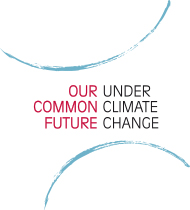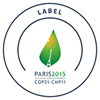The aim of this event relates to objective 3 and 4 of the conference �Our common future under climate change� and will seek to assess the potential for evidence-based solutions to climate change challenge and to contribute to a science-society dialogue. The event will offer to the interested parties, in particular local policy makers, environmental science students and the public at large, an up-to-date introduction to three technologies whose synergic development looks very promising in terms of CO2 emissions reduction, while at the same time supporting sustainable development and affordable energy for all. The workshop will provide an opportunity for discussing how biomass, hydrogen and carbon dioxide capture and storage (CCS) can work together to tackle the climate change challenge and it will also present a unique opportunity to gain input to the research agenda from local policy makers, NGOs and the lay public.
The event will be held in the small town of Caprarola (Northern Lazio, Italy), located in a farming area largely dependent on a mono-culture (hazelnut production) that produces large volumes of bio-waste products that can be a potential local low-emissions energy resource. Within this context, a group of organisations, engaged in supporting a low carbon society, have undertaken a process of dialogue with the local population within the framework of the FP7 project �R&Dialogue; � Research and civil society dialogue�. This project brings together experts from a wide range of different energy sectors to foster participatory dialogue and joint understanding between inhabitants, technical experts, and local administrators in a truly unique way. The member organisations will participate to the session as a multi-stakeholder panel formed by high level research institutions, NGOs, Civil Society Associations, industrial associations, including: prof. Valerio Baiocchi, prof. Sabina Bigi, Stan Beaubien (UniRoma1); Giuseppe Tomassetti (vice-president Italian Federation for Rational Energy use - FIRE); prof. Maurizio Ferretti, prof. Laura Gaggero (UniGenova); prof. Fulvio Bongiorno (UniRoma3); Renata Negri (director Energy Museum); Ovidio Marzaioli (vice secretary general Consumers� Movement); Eugenio Stelliferi (Mayor of Caprarola � Viterbo); Patrizia Breschi (Society for Humanistic Coaching); Aurora Castilla (Serendipity Association); Monica Tommasi (president Amici della Terra Italia Onlus), Rinaldo Sorgenti (vice president ASSOCARBONI).
The session will be an opportunity for a more in-depth exchange on scientific matters related to the three technologies mentioned above, in the context of the on-going societal dialogue on how to achieve a low carbon society. Appointed high level researchers will introduce the session, first illustrating the value of exchange between scientists and society, then introducing the three technologies and the enhanced opportunities that can be derived from their combined implementation. Time will then be dedicated for questions and exchange between the audience, the panel and the presenters. In break out groups they will together address the questions raised and the outcomes from the groups will subsequently be shared in a plenary session. Finally, implications relevant to local stakeholders will be highlighted.
The event will aim to stimulate interest and support for technological innovation to tackle climate change. The event will target in particular the younger generation, inviting participation not only from students in Environmental Sciences at the local universities of La Tuscia, Rome, Rieti and Latina but also from less specialised young audiences. The speakers, who are already well experienced in communicating with a variety of audiences, will present the scientific concepts and technology such that it can be understood by the non-specialist audience,� avoiding jargon and finding simple and suitable explanations, so that all the participants will feel at ease and will be encouraged to take an active role in the debate.
The format of the session will include three blocks of work:
- one hour for introducing the event and the scientific contents
- one hour for formulating questions and addressing them in breakout groups
- one hour for sharing the outcomes from the group work and considering together possible developments of the three technologies at the local level



